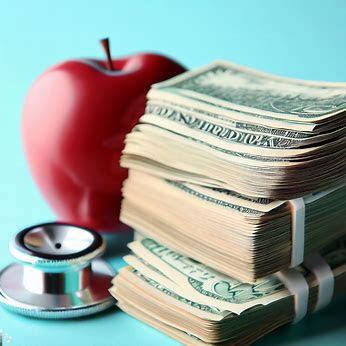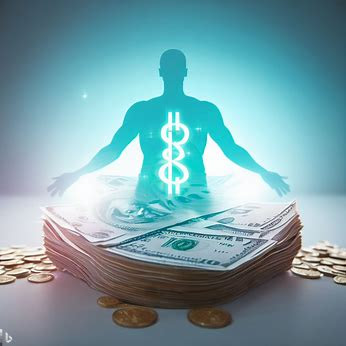Treating Hormonal Acne Naturally
Hormonal acne is a common skin condition that affects many people, especially during their teenage years or when they experience hormonal changes such as during menstruation, pregnancy, or menopause. Hormonal acne is characterized by the appearance of pimples, blackheads, and whiteheads, mostly on the face, neck, chest, and back. While there are many over-the-counter and prescription treatments for hormonal acne, some people prefer to treat it naturally. In this blog post, we'll discuss how to treat hormonal acne naturally.
Keep your skin clean and moisturized
One of the most important things you can do to treat hormonal acne is to keep your skin clean and moisturized. Use a gentle cleanser twice a day to remove dirt, oil, and makeup from your skin. Avoid using harsh soaps or scrubbing your skin too hard, as this can irritate your skin and make acne worse. After cleansing, apply a light moisturizer to keep your skin hydrated.
Follow a healthy diet
Your diet can play a significant role in the development of hormonal acne. Eating a balanced diet rich in whole foods, fruits, and vegetables can help reduce inflammation in the body, which can improve acne. Avoid eating processed foods, sugary drinks, and foods high in refined carbohydrates, as these can increase inflammation and worsen acne.
Manage stress
Stress can trigger hormonal changes that can lead to acne. Find ways to manage your stress, such as practicing yoga, meditation, or deep breathing exercises. Get enough sleep and exercise regularly to reduce stress levels.
Use natural remedies
Many natural remedies can help treat hormonal acne. Some of these include:
Tea tree oil: Tea tree oil has antibacterial and anti-inflammatory properties that can help reduce acne. Apply a small amount of tea tree oil directly to the affected area.
Green tea: Green tea contains antioxidants that can help reduce inflammation and acne. Drink green tea regularly or apply a green tea toner to your skin.
Aloe vera: Aloe vera has anti-inflammatory and antibacterial properties that can help reduce acne. Apply aloe vera gel to your skin or drink aloe vera juice.
Avoid certain skincare products
Some skincare products can worsen hormonal acne. Avoid using products that contain harsh chemicals, fragrances, or alcohol. Look for products that are labeled "non-comedogenic," which means they won't clog your pores.
In conclusion, hormonal acne can be frustrating to deal with, but there are many natural remedies that can help improve it. By following a healthy diet, managing stress, using natural remedies, and avoiding certain skincare products, you can effectively treat hormonal acne and achieve clear, healthy skin.
Acne is a common skin condition that can be caused by a variety of factors, including hormones. Hormonal acne occurs when there is an imbalance in the body's hormone levels. This can be due to puberty, menstruation, stress, or other factors. Genetics can also play a role in hormonal acne.
 |
| Hormonal acne is an attack on your skin by the hormones you are producing that is not caused by a bacteria, virus or any other external factor. |
Plastic Surgeon: This Potion Rubs 10 Years Off Your Face In Days
There are several natural treatments that can help to clear up hormonal acne. Tea tree oil, apple cider vinegar, and probiotics are all effective treatments. Prevention is also important. Avoiding hormonal triggers and eating a balanced diet
The Causes of Hormonal Acne.
Types of acne is caused by an imbalance in the body's natural hormone levels. This can be due to a number of factors, including puberty, stress, menstruation, and menopause. When these hormone levels are out of balance, it can cause the sebaceous glands to produce too much oil, which can lead to clogged pores and breakouts.
Hormonal acne is caused by an increase in androgens, the male hormones present in both men and women, leading to an increase in oil production. This, in turn, can cause clogged pores and breakouts. Some common causes of hormonal acne include:
Puberty: Hormonal changes during puberty can cause an increase in oil production and lead to acne.
Menstruation: Hormonal fluctuations during the menstrual cycle can cause breakouts, especially around the mouth and jawline.
Pregnancy: Hormonal changes during pregnancy can cause acne, especially during the first and second trimesters.
Polycystic ovary syndrome (PCOS): Women with PCOS often have elevated androgen levels, which can lead to acne.
Hormonal contraceptives: Certain birth control pills or hormonal injections can increase androgen levels and cause acne.
Stress: Stress can cause the body to produce more androgens, leading to an increase in oil production and breakouts.
Dairy and high-glycemic foods: Consuming dairy and high-glycemic foods can increase insulin levels, leading to an increase in androgens and causing acne.
It's important to consult with a healthcare professional if you are experiencing persistent or severe acne, as they can help determine the underlying cause and recommend appropriate treatment
Genetics.
Acne is often thought of as a teenage problem, but it can affect people of all ages. If you have a family history of acne, you may be more likely to suffer from hormonal acne yourself. This is because genetics plays a role in the development of acne.
Poor Diet.
A diet that is high in sugar and processed foods can also contribute to hormonal acne supplements These foods can trigger inflammation in the body and cause the sebaceous glands to produce more oil.
👉Derma ProGenix Advanced Anti-Aging Skin Care Serum
The Symptoms of Hormonal Acne.
Hormonal acne is often characterized by clogged pores. When the pores are clogged, they become enlarged and can lead to blackheads, whiteheads, and eventually pimples.
Inflammation.
Hormonal acne is also characterized by inflammation. This is because the hormones that cause hormonal acne also stimulate the production of oil in the skin, which can lead to inflammation.
Breakouts.
Hormonal acne breakouts can occur on the face, neck, chest, back, and shoulders. They can be large or small, deep or shallow, and they may last for days or weeks at a time.
👉How to get rid of hormonal acne
Natural Treatments for Hormonal Acne.
Tea tree oil is a natural antibiotic that can kill the bacteria that cause acne. It also has anti-inflammatory properties that can reduce redness and swelling. You can apply tea tree oil to your skin using a cotton ball or Q-tip.
Apple Cider Vinegar.
Apple cider vinegar balances the pH of your skin, which can help to reduce breakouts. It also has antibacterial properties that can kill the bacteria that causes acne. You can apply apple cider vinegar to your skin using a cotton ball or Q-tip.
Probiotics.
Probiotics are live bacteria that are good for your health, including your skin health. They can help to reduce inflammation and the number of pimples you get. You can take probiotics as a supplement, or you can eat probiotic-rich foods like yogurt, sauerkraut, and kimchi.
How to Help Hormonal Acne
Best products for hormonal acne
Prevention Tips for Hormonal Acne.
Hormonal acne can be triggered by a number of different things. To help prevent breakouts, it is important to avoid any potential triggers. Some common triggers include:
• Birth control pills: These can increase the levels of androgens in the body, which can lead to breakouts. If you are using birth control pills and suffering from hormonal acne, talk to your doctor about switching to a different type of contraceptive.
• Dairy products: Dairy products contain hormones that can trigger breakouts. If you are prone to hormonal acne, try avoiding dairy or switching to a dairy-free diet.
• Refined sugar: Sugar can cause inflammation in the body, which can lead to breakouts. If you have hormonal acne, try cutting back on sugary foods and drinks.
Eat a Balanced Diet.
Eating a healthy, balanced diet is important for overall health and can also help prevent hormonal acne breakouts. Some foods that are good for preventing hormone-related acne include:
• Omega-3 fatty acids: These help reduce inflammation in the body and can be found in fish like salmon and tuna, as well as in flaxseeds and chia seeds.
• probiotics: Probiotics help balance the levels of good and bad bacteria in the gut, which can help improve overall skin health. They can be found in yogurt, kimchi, sauerkraut, and other fermented foods.
Conclusion
1. Cleanse your skin daily - Wash your face twice a day with a gentle cleanser to remove dirt, oil and makeup that can block pores and aggravate existing acne. Look for an acne-friendly formula free of added fragrances and synthetic oils.
2. Eat a balanced diet - Eating healthy, whole foods helps keep your hormones in balance, which is important for clear skin. Incorporate more fresh fruits and vegetables into your diet, as well as lean proteins and healthy fats.
3. Exercise regularly - Regular physical activity can help reduce stress and balance hormone levels which can help prevent breakouts from happening in the first place. Aim for at least 30 minutes of moderate exercise every day if possible.
4. Avoid triggers - Try to identify what factors might trigger hormonal acne flare-ups in your own case, such as stress or eating too many sugary snacks. When you know what causes outbreaks for you, it's easier to avoid them in the future.
5. Drink plenty of water - Drinking enough water each day keeps the body hydrated and flushes out toxins that can lead to hormonal imbalance which contributes to acne formation on the skin. Make sure to get at least 8 glasses of water a day.
6. Reduce stress levels - Stress hormones like cortisol can make existing acne worse by making the body produce more sebum (skin oil). Find activities that help you relax like yoga or meditation and try to keep stressful situations at bay if possible.
7. Consider supplements - Some supplements like fish oil, zinc or probiotics have been linked to reducing the effects of hormonal acne when taken consistently over time so speak to your doctor about these options if necessary.
If you're struggling with hormonal acne, don't despair. There are natural treatments that can help clear up your skin. Tea tree oil, apple cider vinegar, and probiotics are all effective ingredients that can help control hormone levels and reduce inflammation. In addition, flo vitamins following a balanced diet and reducing stress can also help prevent breakouts. So if you're looking for a way to get rid of hormonal acne, try these natural remedies and see what works for you.



.jpeg)




.png)
0 Comments